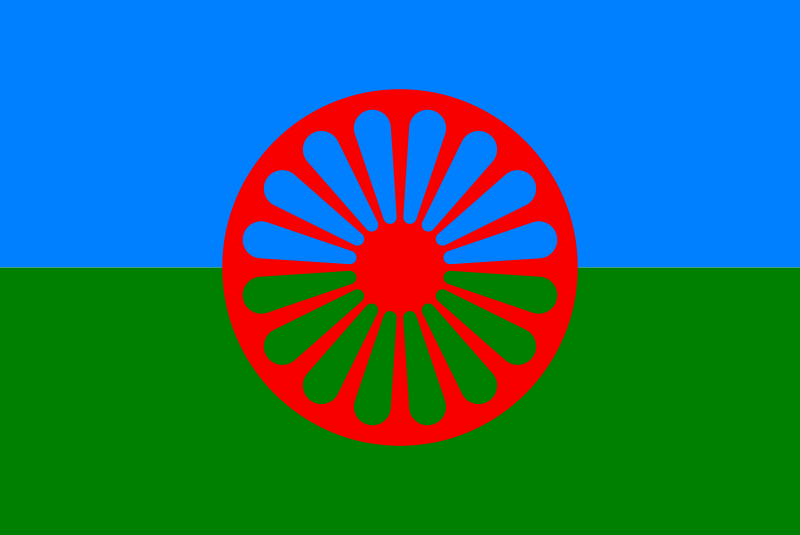Over 30 years of anarchist writing from Ireland listed under hundreds of topics
Policing
Jobstown Not Guilty verdict exposes Garda, Labour and class rule in Ireland
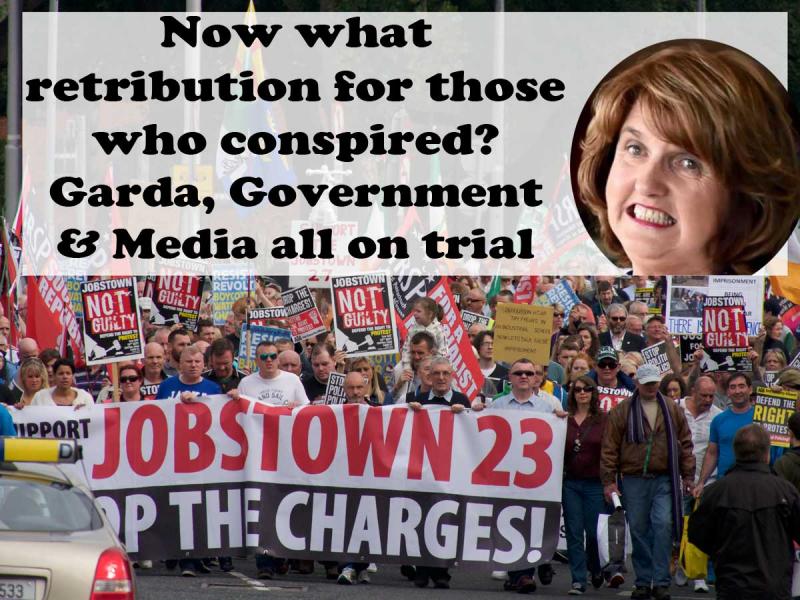 THE JOBSTOWN SIX have been found NOT GUILTY - a disastrous outcome for the Labour party and Garda in what has been the biggest political show trial for some decades. It is impossible to have followed the details of the arrests and trial and walk away with the impression that the Garda were not acting on government instructions, even if just on the basis of the ‘nod and a wink’. The verdict may well catch anyone relying on the mainstream media as a surprise because right across that media the reporting of the trial was highly selective, reflecting the interests of those who own and control it.
THE JOBSTOWN SIX have been found NOT GUILTY - a disastrous outcome for the Labour party and Garda in what has been the biggest political show trial for some decades. It is impossible to have followed the details of the arrests and trial and walk away with the impression that the Garda were not acting on government instructions, even if just on the basis of the ‘nod and a wink’. The verdict may well catch anyone relying on the mainstream media as a surprise because right across that media the reporting of the trial was highly selective, reflecting the interests of those who own and control it.
*** A summary for anyone following this from outside Ireland, six men were on trial accused of falsely imprisoning the then Tanáiste and Labour TD, Joan Burton, and her colleague in Jobstown on 15 November 2014. The charge of false imprisonment carries a maximum sentence of life imprisonment. All six men claimed that they were exercising their right to protest, and that the protest was peaceful. Following a nine week trial, the six have been found not guilty. ***
Squatting & the property question - Personal Possessions & Communal Property v Private Property
After an illegal eviction on Phibsborough Rd. in June much debate arose surrounding the legitimacy of the squatters and their rights to take over empty and unused properties and put them to use. This piece looking at the issue of squatting and property rights was written by a WSM member and an An Spreach member who was evicted on that day from the property.
Summer of evictions in Dublin - video interview
An interview about the wave of occupations and evictions that took place in the first half of 2015 in Dublin.
Thinking about Anarchism - Anarchism and the State
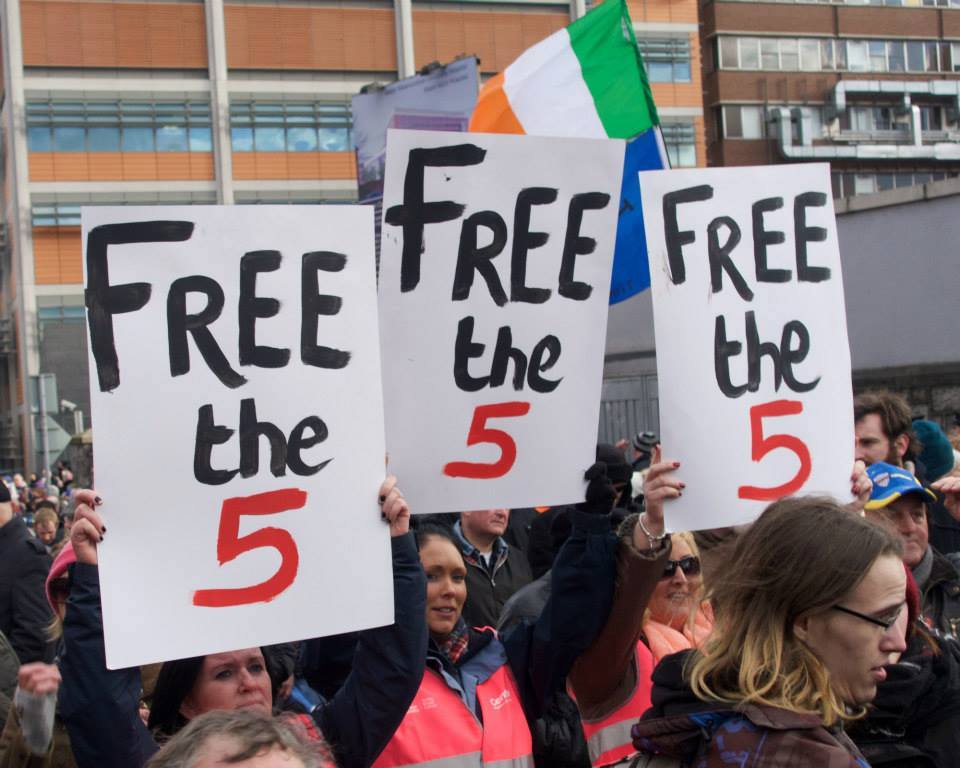 Ever wonder why the Gardaí show up in large numbers when you’re trying to stop water meters in your estate, but haven’t got the resources to come straight out when you think your neighbour’s house is being burgled? If so, you’re thinking about the state.
Ever wonder why the Gardaí show up in large numbers when you’re trying to stop water meters in your estate, but haven’t got the resources to come straight out when you think your neighbour’s house is being burgled? If so, you’re thinking about the state.
Misconceptions & Reality
The most common misconception about anarchism is that it is in favour of ‘chaos’ or some sort of world generally devoid of order and democratic institutions which would leave us at the mercy of predators within our society. Therefore it aims for the destruction of civilisation and democracy itself, which in this view are represented by the state – the guarantor of peace, freedom, and of course, roads.
ACAB: All Cops Are ... Bounded
This photo was taken at Thursday evening's demonstration against the criminalisation of protest - in particular the arrest of almost 20 people for participating in a 2 hour blockade of the Tánaiste 3 months previously. It shows protesters holding signs saying 'ACAB' – but what does this mean? It means 'All Cops Are Bastards'. We can hear some people objecting already: 'not all Gardaí are bad'. But please hold on, that's missing the point entirely. ACAB doesn't mean that each police officer as an individual person is nasty, sadistic, dishonest, and so on. It means that every police officer is bounded by their job as an agent of the state, and this necessarily causes cops to act like 'bastards' - whether or not they want to.
The anti-Roma racism of the child seizures - No further Action Required
In this guest piece Damien Walshe, long term anti-racist activist, takes the opportunity to reflect on what happend in the last week when State authorities acted to take away blonde children from their Roma parents.
“Damned if they did something, damned if they did nothing”
A standard response (and the one trotted out by the Minister for Justice) is that it was best for the HSE/Gardai to err on the side of caution: “better be safe than sorry” has been the mantra. Okay, let’s have a look at that statement: What the danger was established in order to abduct the two Roma children from their families? Under the Child Care act children can be taken into care if a child has or is being assaulted, ill-treated, neglected or sexually abused, or whose health, development or welfare has been or is likely to be impaired or neglected. No one has remotely suggested this was the case for either child.
Making Policing History: Studies of Garda Violence and Resources for Police Reform
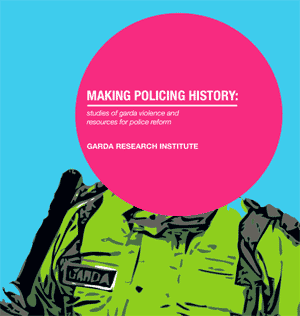 These texts are written and edited by the Garda Research Institute which is composed of residents, community workers and educators who have both personally experienced Garda violence and have heard countless negative stories about the gardaí. They came together to examine the role of the gardaí and in particular to spark debate and discussion about who gets targeted by the police and why.
These texts are written and edited by the Garda Research Institute which is composed of residents, community workers and educators who have both personally experienced Garda violence and have heard countless negative stories about the gardaí. They came together to examine the role of the gardaí and in particular to spark debate and discussion about who gets targeted by the police and why.
The text is structured in the following way. Following the introduction and a piece on the making of the gardaí, the pamphlet is divided into three sections, the first of which looks at the experience of the policed. The next section looks at the policing of protest by the gardaí. The final section looks at responses to policing and examines how grassroots activists and movements have attempted to make the police more accountable.
For ease of reading you can download a PDF of the entire text in A4 format or fold over A5 format.
Derry and the War on Drugs: An Anarchist View
.jpg) News that the Red Cross, an international humanitarian organisation, have been directly assisting local community workers in the Rosemount area of Derryhas again heightened concerns of a potential “drugs epidemic” developing in the city.
News that the Red Cross, an international humanitarian organisation, have been directly assisting local community workers in the Rosemount area of Derryhas again heightened concerns of a potential “drugs epidemic” developing in the city.
The story first broke over the last few weeks prior to a BBC Spotlight programme investigating the vigilante group Republican Action Against Drugs or RAAD. It revealed that the Red Cross has been working with the Rosemount Resource Centre over the past eight months, believed to be the first time ever the humanitarian group has worked with another organisation in the north.
Your rights when stopped and/or arrested by a garda
This is a useful guide written by a barrister for Shell to Sea on what your rights are when stopped, and / or arrested by Garda. Garda seeking information or to frighten you will often mislead you as to what your rights are, its a good idea to have a basic understanding so that they quickly understand such methods are unlikely to work.
Bloody Sunday in Derry - Origins & Consequences of a Massacre
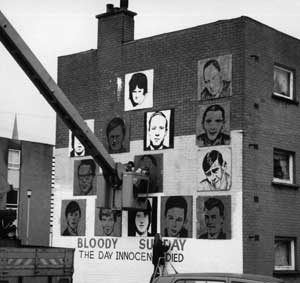 On the 30th January 1972 British soldiers opened fire on protesters in the city of Derry, north-west Ireland. Twenty six unarmed protesters were shot, 13 died immediately or within hours, one more died just over four months later. Derry was in the section of Ireland claimed by the British state and the shootings happened in the context of the suppression of a growing civil rights movement demanding equality for Catholics in the 6 of Ulster’s counties claimed by Britain.
On the 30th January 1972 British soldiers opened fire on protesters in the city of Derry, north-west Ireland. Twenty six unarmed protesters were shot, 13 died immediately or within hours, one more died just over four months later. Derry was in the section of Ireland claimed by the British state and the shootings happened in the context of the suppression of a growing civil rights movement demanding equality for Catholics in the 6 of Ulster’s counties claimed by Britain.


